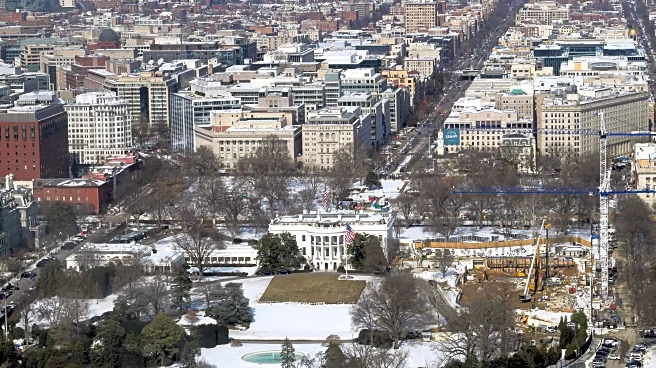What's Happening?
President Donald Trump's senior Africa envoy, Massad Boulos, has rejected allegations of bias in the U.S.'s latest proposal to end the civil war in Sudan. The conflict, which has persisted for over two
years, involves Sudan's army and the paramilitary Rapid Support Forces (RSF). The U.S., along with Saudi Arabia, Egypt, and the United Arab Emirates (UAE), has been mediating peace efforts. Sudan's army chief, Abdel Fattah al-Burhan, criticized the ceasefire proposal, claiming it favored the RSF and was influenced by UAE involvement. Despite these accusations, Boulos dismissed claims of bias, stating that the U.S. has not presented any such proposal. The RSF announced a unilateral ceasefire, which the army dismissed as a political maneuver. The conflict has resulted in significant humanitarian crises, with millions displaced and numerous reports of atrocities.
Why It's Important?
The ongoing conflict in Sudan has severe humanitarian implications, with millions displaced and reports of war crimes. The U.S.'s involvement in mediating peace is crucial, as it reflects its influence in international conflict resolution. The allegations of bias and foreign interference highlight the complexities of international diplomacy, especially when multiple nations are involved. The outcome of these peace efforts could significantly impact regional stability in Africa and the credibility of the U.S. as a neutral mediator. The situation also underscores the challenges faced by international bodies in addressing conflicts where accusations of bias and foreign influence are prevalent.
What's Next?
The future of the peace process in Sudan remains uncertain. The U.S. and its allies may need to reassess their strategies to address the concerns raised by Sudan's army. Continued dialogue and negotiation are essential to achieving a lasting ceasefire and transition to civilian rule. The international community will likely monitor the situation closely, with potential adjustments in diplomatic approaches to ensure a balanced and effective resolution. The involvement of major powers like the U.S. and UAE will be scrutinized, and their roles may evolve based on the conflict's developments.











